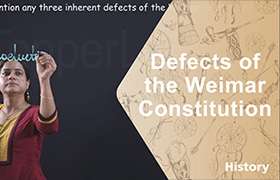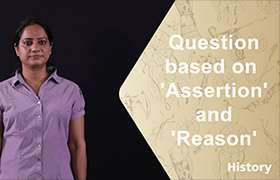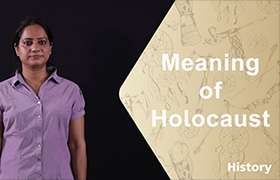CBSE Class 9 Answered
explain the long and short term causes for the revolution of 1917?
Asked by Mukesh Mohan | 09 Sep, 2014, 09:03: PM
The October Revolution or the Russian Revolution of 1917 was the result of several long term and short term factors.
Long Term Causes:
- Unlike other countries of Europe, Tsarist Russia was still largely unindustrialized and underdeveloped. Majority of the population depended on agriculture for income and subsistence. Since modern infrastructure and agricultural equipment hadn't reached the hinterland, farmers' income was extremely low and there was widespread discontent among them.
- Industrialisation was still in its infantile stage in Russia and most of the factories were in small urban pockets. The wages of the workers were low, the working conditions were sub-standard and the working hours were extremely long. Though the workers were divided along social and economic faultlines, they did have a certain degree of class consciousness and often came together to strike work.
- In the rural heartland, the Orthodox Church, the crown and the nobility owned large properties. The peasants largely despised the nobility and saw them as the reason behind their hardships.
- Socialists and Communists had been active in Russia since the late 19th century and had been organising peasants and workers for a long time.
- Despite the popular unrest caused during the 1905 Revolution, the Tsar was still persistent on resisting any reduction in his powers. The autocracy was hell bent on sabotaging all attempts to establish responsible, representative democratic government.
Short Term Causes:
- Russia suffered heavy losses during the First World War. There were heavy casualties, industrial production nosedived due to the stress of the war, industrial equipment became scarce and the price and availability of foodstuffs became a major problem. As a result there was a lot of distress among the common folk and resentment against the Tsarist regime was at its peak.
- Though the February Revolution had resulted in the abdication of the Tsar, the new Provisional Government was dominated to a certain extent by the army officials, landowners and industrialists. This was seen as a major hindrance by Lenin and other Bolsheviks who wanted to bring about a socialist reconstruction of the State and society.
- Lenin feared that the Provisional Government would set up a dictatorship. Therefore, he persuaded the Petrograd Soviet and the Bolshevik Party for a socialist seizure of power. Accordingly, the uprising began on 24 October, 1917 and eventually resulted in the Bolshevik takeover of power.
From now on, kindly make sure that you are putting the correct chapter name when you ask a question. Thank you.
Answered by Soumil Shukla | 10 Sep, 2014, 03:51: PM
Application Videos
CBSE 9 - History
Asked by pbxsam21 | 21 Apr, 2024, 06:49: PM
CBSE 9 - History
Asked by svasu2089 | 11 Apr, 2021, 07:19: AM
CBSE 9 - History
Asked by itsarooshafirdous | 19 Feb, 2021, 10:25: AM
CBSE 9 - History
Asked by aarshdeepsandhu1407 | 14 Dec, 2020, 08:52: AM
CBSE 9 - History
Asked by gavarunca882006 | 30 Nov, 2020, 07:01: PM
CBSE 9 - History
Asked by ganeshnextdinesh | 12 Sep, 2020, 11:50: AM
CBSE 9 - History
Asked by singhkapish.007 | 28 Aug, 2020, 08:12: AM
CBSE 9 - History
Asked by 2903anil | 03 Oct, 2019, 08:39: PM
CBSE 9 - History
Asked by Topperlearning User | 23 Jul, 2015, 03:38: PM
CBSE 9 - History
Asked by Topperlearning User | 28 Sep, 2015, 03:03: PM






